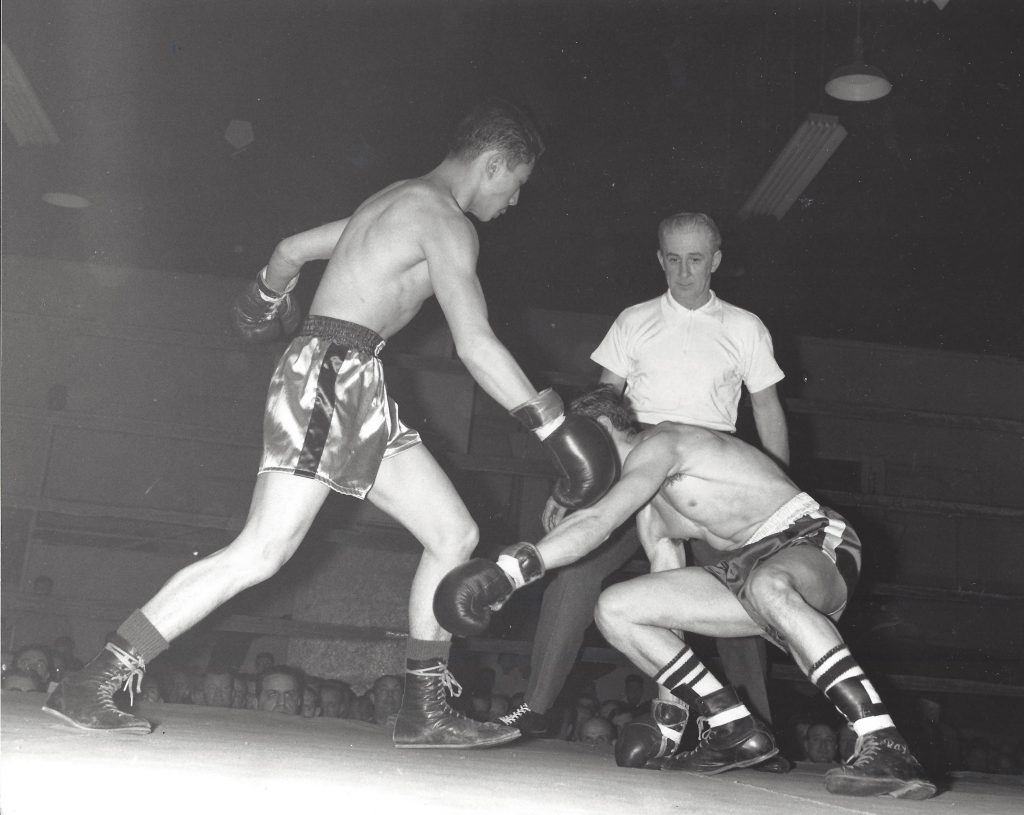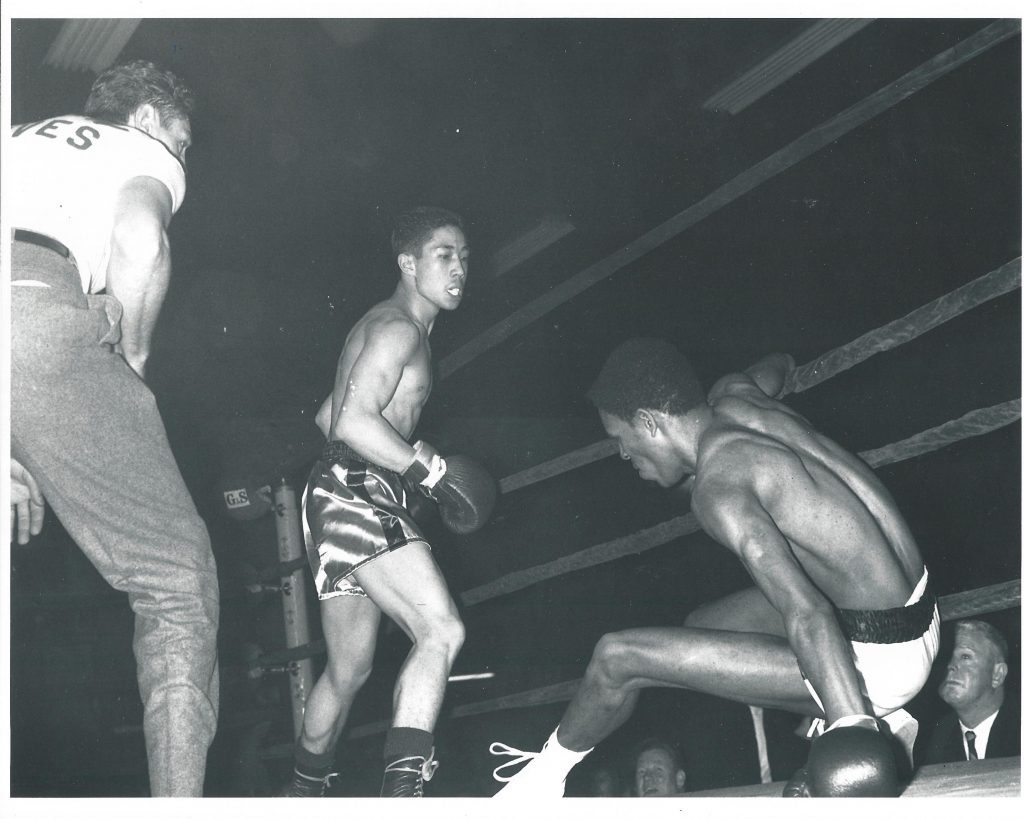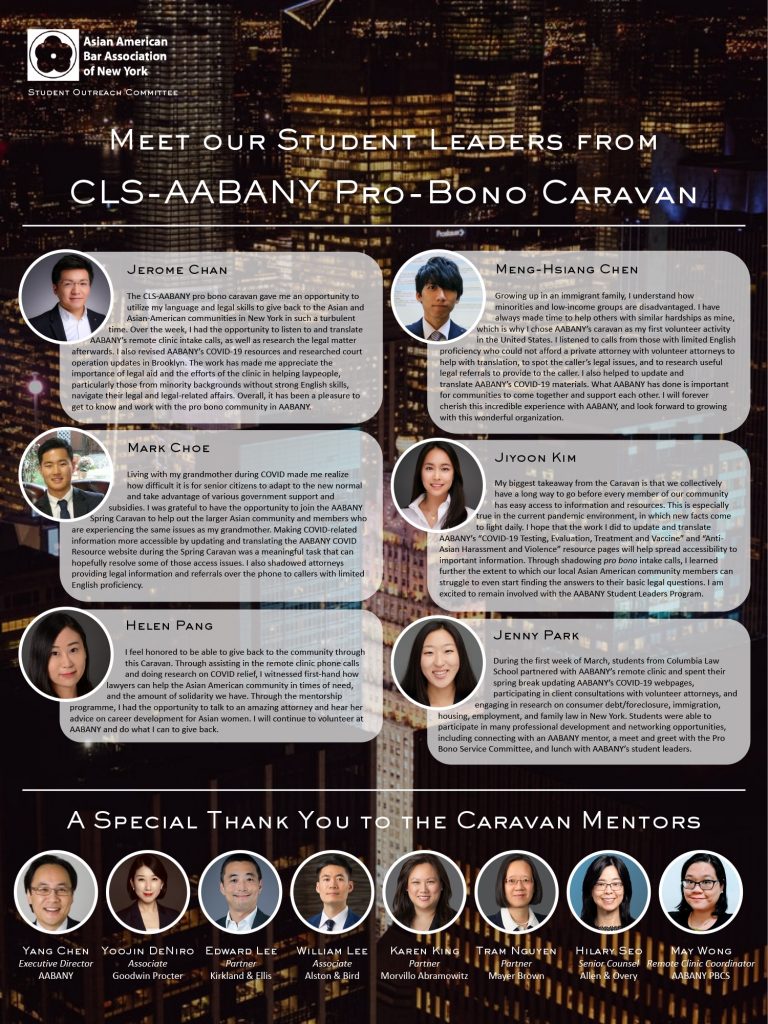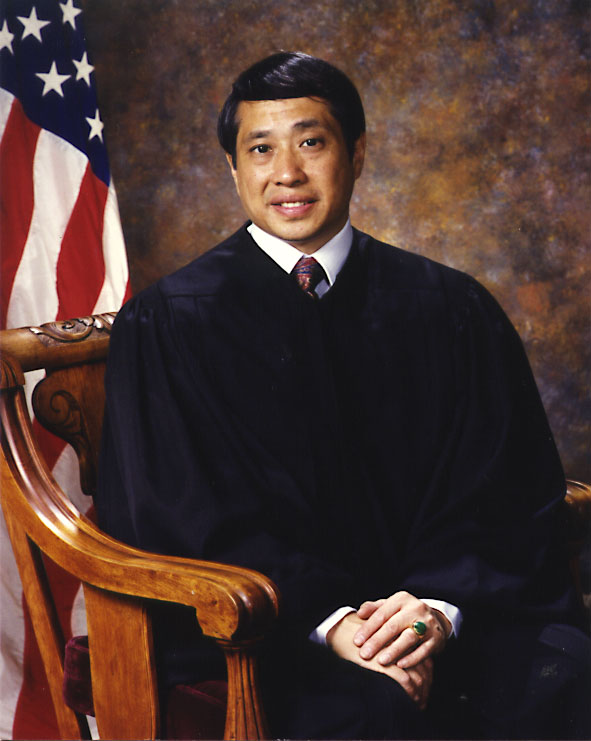
AABANY is proud to spotlight Hon. Peter Tom, the 2021 recipient of the New York State Bar Association’s George Bundy Smith Pioneer Award. Justice Tom says he is honored to receive an award named after Judge Smith, whom he always considered a good judge and good friend. Judge Smith served on the New York Court of Appeals and was a veteran of the Civil Rights Movement. Since 2007, the honor in his namesake has been accorded to lawyers who demonstrate a similar level of commitment to legal excellence, community service and mentoring. Justice Tom has done just that in his trailblazing, thirty-plus year judicial career.
After graduating from Brooklyn Law School in 1975, Justice Tom joined the Civil Court of the City of New York as a Law Clerk, working on a wide variety of criminal and civil assignments. As he grew comfortable in the court system, he began rethinking his original plans to start his own law firm, and in 1985, Justice Tom became the first Asian American appointed to the Housing Court of the City of New York. Although he could not have known it then, this initial foray into the court system would launch a long and distinguished career of judicial “firsts” for an Asian American. In 1987, Justice Tom was one of the first Asian Americans elected to the Civil Court of the City of New York; in 1990, he became the first Asian American elected to the New York State Supreme Court in New York County; and from 1994 until 2008, he served as the first and only Asian American in the Appellate Division of the State of New York.
While Justice Tom’s judicial career is defined by a multitude of groundbreaking rulings and widely publicized opinions, his success spanned beyond the walls of the courtroom. At age 18, Justice Tom became the first Asian American to win the New York Golden Gloves — amateur boxing’s most prestigious tournament. What began as a tactic for self-defense had landed him in Madison Square Garden’s ring on the week of four exams. As his attention flitted from schoolwork to boxing, the young Tom was learning a lesson that stuck with him even after he swapped his gloves for a gavel. In the words of the Justice, “You cannot excel at more than one thing in life because there’s just not enough time to prepare yourself. So work harder than the competition in whatever you do, and you’ll come out ahead.”
And work hard he did. While his days in retirement have been dedicated to exercise, art, and travel, Justice Tom spent much of his professional career burning the midnight oil. In his very first judicial position, the then-Housing Court Judge was swamped with twenty to thirty new cases on a daily basis. Justice Tom recalls laboring to reach as many settlements as possible on the weekdays before spending entire weekends writing legal opinions. During this time, a frequent visitor of his was the courthouse custodian, who would come in at midnight to send the indefatigable judge home before locking up.
The concept of halfhearted work was just as foreign to Justice Tom then as it was years earlier in the boxing ring. While serving on the New York Supreme Court, he sought to instill the same tenacity in his interns, whom he taught that nothing short of absolute focus was essential for success. It is this sort of tireless work ethic that Justice Tom hopes to impress upon all aspiring jurists: “Nothing in life comes easy, so build a strong reputation for yourself by volunteering your time to your community and by working hard.”
Over the course of his judicial career, Justice Tom authored more than 500 legal opinions, many of which received front page coverage in the New York Law Journal. As a testament to the fairness of his decisions, the Court of Appeals regularly affirmed his opinions and used his dissents as the basis for reversal. In one of his most groundbreaking rulings, Justice Tom employed a 100-year-old “Bawdy House Statute” for the first time to evict drug dealers from residential property. His decision could not have come at a more opportune moment for New York, which was then being ravaged by the 1980s crack epidemic. Employing Justice Tom’s novel application of the statute, the Manhattan District Attorney’s office subsequently established a Narcotics Eviction Part throughout the city’s Civil Courts. The Justice’s ingenuity thereby helped to convert an obscure law from 1840 into a potent weapon for clearing out crack dens across the city.
While serving in the Appellate Division, Justice Tom enjoyed hearing cases on the whole spectrum of legal issues, from commercial and criminal to housing and family. One particular case, however, remains among his proudest accomplishments. People v. Luis Kevin Rojas centered on the wrongful murder conviction of Luis Rojas, whose lawyer had failed to investigate his alibi and even ineptly indicated during trial that Rojas was present at the crime scene. After his conviction, Rojas hired new lawyers and private investigators, who unearthed evidence that seemed to vindicate Rojas entirely. Writing for the appellate panel, Justice Tom castigated the defendant’s trial counsel for his “ignorance of the facts” and reversed Rojas’ conviction and his sentence of 15 years to life. Justice Tom’s decision, which saved an innocent man from a potential lifetime in prison, was featured in both the New York Times and the New York Law Journal.
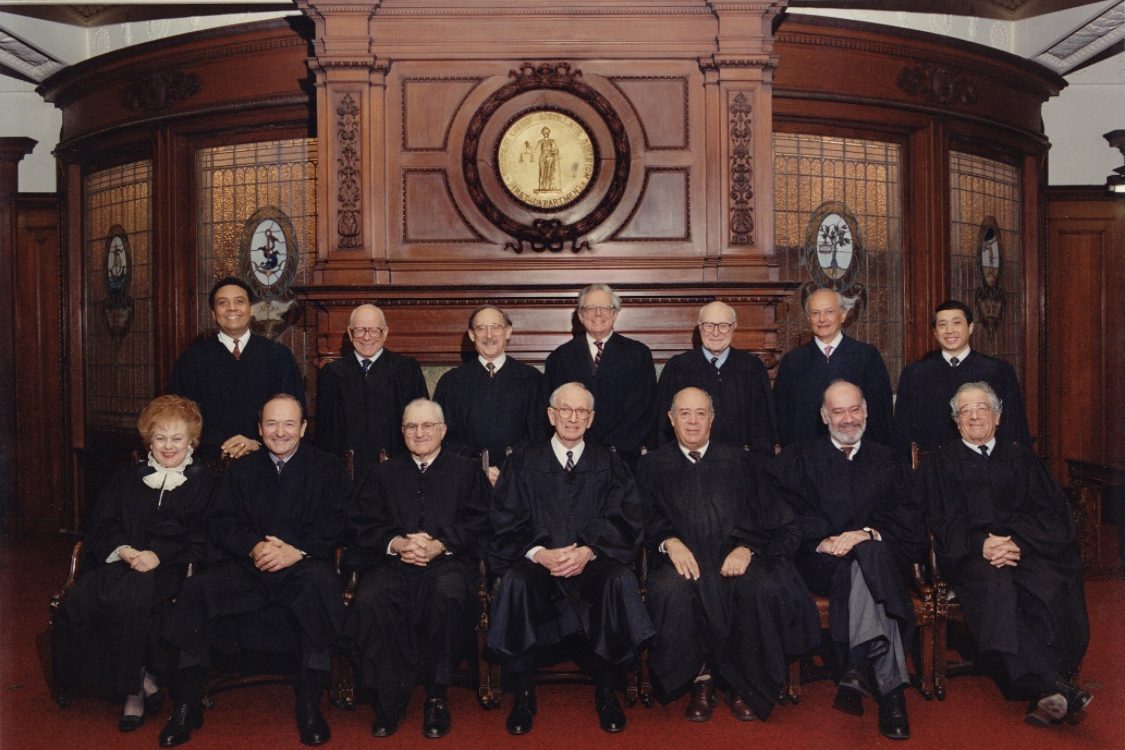
Though his extensive resume of legal triumphs might suggest otherwise, Justice Tom’s judicial path was not always seamless. Among the obstacles he faced was the former lack of a bar association representing Asian Americans. While AABANY now boasts nearly 1500 members as the nation’s largest affinity bar association, it was still a nascent organization — only one year old — when Justice Tom applied for his third judicial position in 1990. At the time, there were well-established ethnic bar associations for virtually all the other minority candidates. The Jewish Lawyers Guild had been established in 1962, the LGBT Bar Association of New York in 1978, and so on. Justice Tom’s ability to climb the court system without similar representation was the exception rather than the norm, as revealed by the paucity of Asian American judges seated back then.
While diversity on the bench has since increased, today’s courts are still far from reflecting the diversity of the communities they serve. Justice Tom identifies the lack of AAPIs in the judiciary as the primary reason that Asian Americans do not feel comfortable participating in the system. Particularly amid the ongoing surge in anti-Asian violence, Justice Tom says that many Asians view the predominantly white court system as a foreign institution — one where their chances of achieving proper recourse are slim. In this context, Justice Tom believes that his various judicial appointments have helped Asian Americans feel more like a part of the institution themselves. AAPIs constitute a large portion of the New York population, and representation in the judiciary must reflect this population. According to Justice Tom, greater representation of Asians among court personnel at all levels, from officers and reporters to clerks and judges, will increase the fairness of the institution in both appearance and reality.
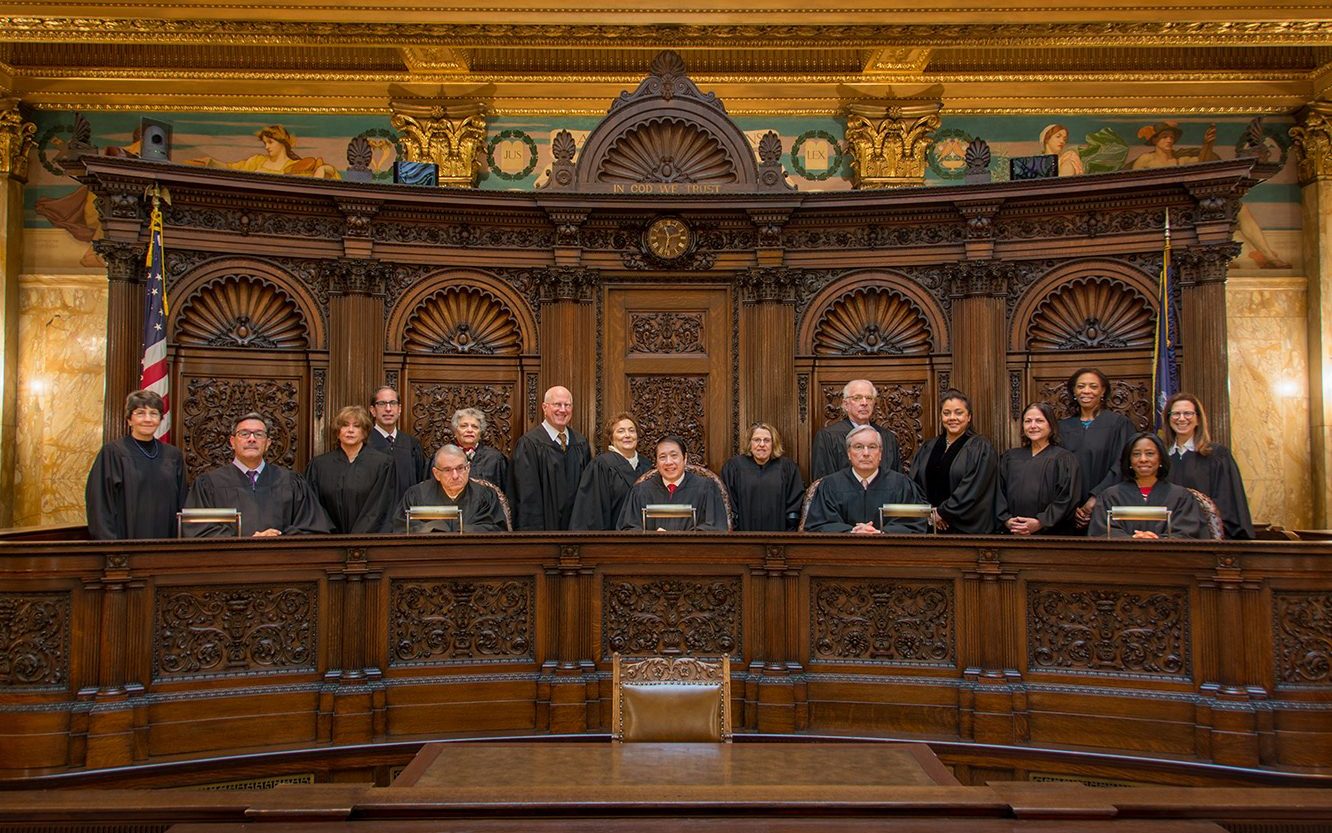
Department in 2007, 2009, and 2016.
As a harbinger of the increased diversity he hopes for, Justice Tom left a judicial legacy that doubtlessly merits NYSBA’s George Bundy Smith Pioneer award. Looking forward, he believes that AABANY’s rapid growth will enable the association to play a critical role in seating even more Asian Americans on the bench. Because judges can only say so much while remaining bipartisan, Justice Tom views AABANY as an advocate that can speak on behalf of budding Asian American jurists. One can only hope that among this group of aspirants, some will follow in Justice Tom’s footsteps and emerge as the next generation of legal pioneers.
AABANY encourages everyone to attend the presentation of Justice Tom’s award at NYSBA’s Commercial and Federal Litigation Spring Meeting on Thursday, May 6, from 6:00 p.m. to 7:30 p.m. The registration page for the award ceremony can be found here.


